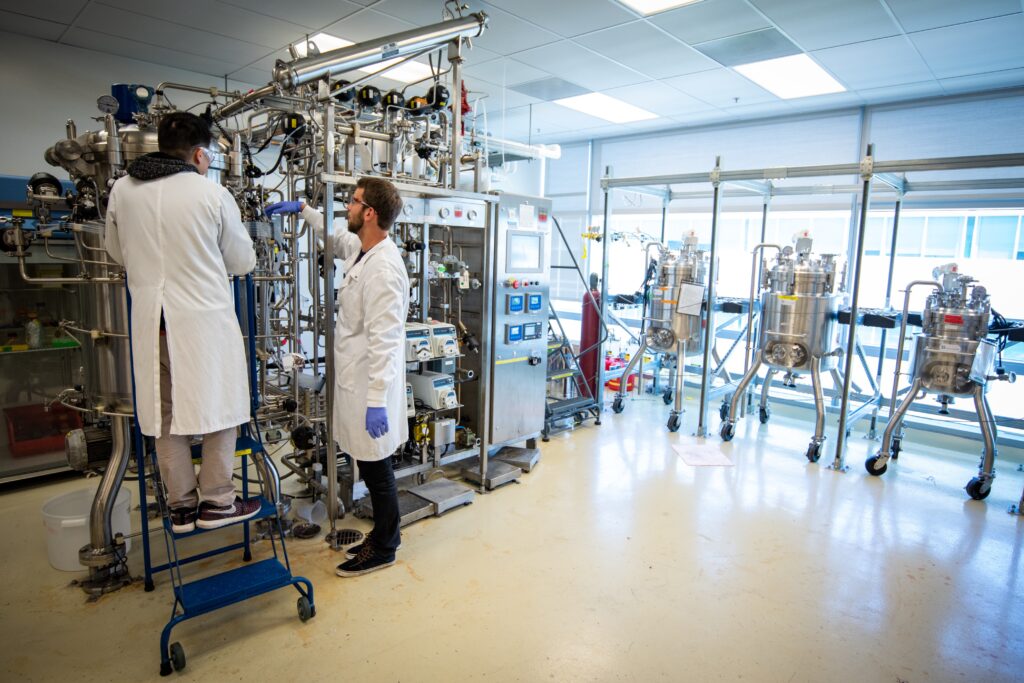As part of a newly established collaborative, Lawrence Berkeley National Laboratory (Berkeley Lab) will co-lead an effort to establish a bioindustrial manufacturing capability in California’s Northern San Joaquin Valley.
Circular Bioeconomy Innovation Collaborative (CBIO Collaborative), also led by UC Merced and BEAM Circular, was awarded $1 million from the U.S. National Science Foundation’s (NSF) Regional Innovation Engines program. The program aims to help partners collaborate on economic, societal, and technological opportunities for their regions.
The award will enable CBIO Collaborative to develop actionable and strategic plans to create an innovation campus and ecosystem in the Northern San Joaquin Valley centered on biomanufacturing, which harnesses biology’s natural systems to create sustainable products, materials, and fuels from renewable materials.
“Scaling up biomanufacturing technologies is a crucial part of bringing innovations to market. But there are gaps in the translation of basic discoveries to large-scale applications,” said Deepti Tanjore, Director of the Advanced Biofuels and Bioproducts Process Development Unit (ABPDU) at Berkeley Lab and a project co-investigator. “The Northern San Joaquin Valley has the potential to fill these gaps. Its renewable agricultural residues can serve as feedstocks for biomanufacturing technologies, and its complementary manufacturing capabilities can enable commercial-scale production.”
The planning effort will leverage expertise from ABPDU, a bioprocess scale-up facility with over 10 years of experience in bringing innovative biomanufacturing technologies from the lab to commercial relevance. As part of CBIO Collaborative, researchers at ABPDU will serve as technical advisers and will facilitate connections to its broad network of industry partners.




